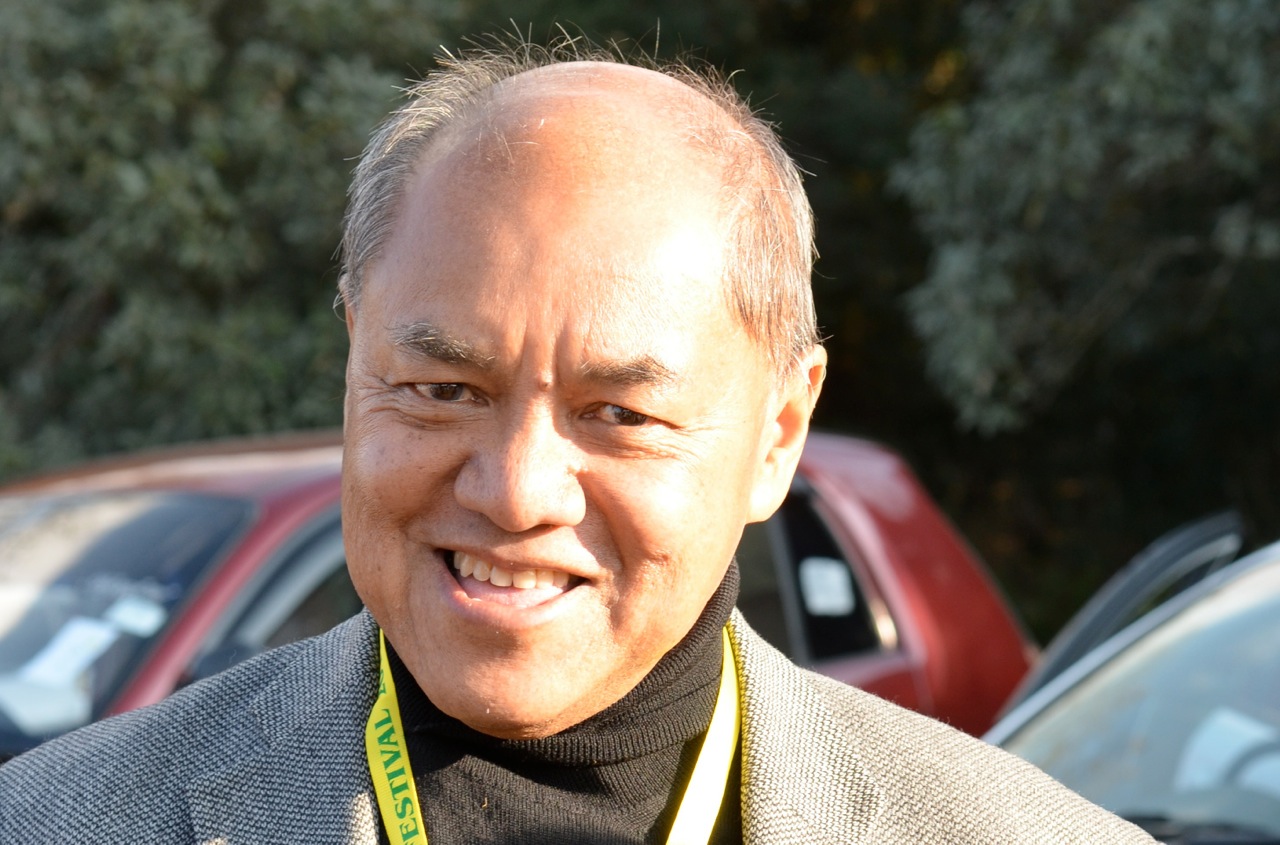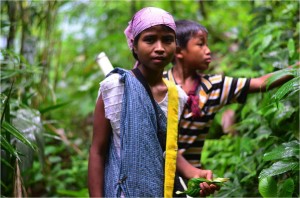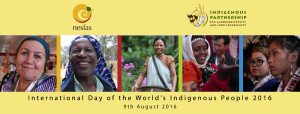
“My experience with international organisations taught me that there is a need for a more inclusive approach that treats the custodians of traditional knowledge and modern day researchers as equal, but diverse, knowledge holders. The well-being of future generations cannot be sustained if we continue to marginalise indigenous peoples, fail to learn from them about their cultural ways of respecting agrobiodiversity and do not defend their food sovereignty to practice their farming systems.”
What is blocking the mainstreaming of agrobiodiversity?
Current agricultural trends are all about moving towards a cash economy rather than subsistence farming. Unfortunately, the question is often not “how can I grow healthy food for my own family” but “how can I grow crops that will reap monetary benefits”. In the current system, we don’t look at hidden subsidies or at the cost of ill health that comes with a long dependence on chemically supported commercial production. The narrow focus on production, the obsession that we cannot feed the world without chemicals and ignorance about traditional systems are some of the biggest challenges to transformation.
Creating local livelihoods based on agrobiodiversity is one strategy for responding to this situation, but this is easier said than done. It is crucial that farmers proactively share their successful experiences. But many farmer groups have limited opportunities to make their distinctive ecological practices known, or they lack the leverage to influence policy makers. We should
be more involved in connecting these dots. We also need to “glamorise” local economies. This would also help the younger generation feel more attracted to farming. Finally, farmer organisations must push more actively for a thorough and true cost accounting of commercial agriculture.
Who are the “shakers” of the system?
These are
the farmers and communities who maintain their local agrobiodiversity despite modern influences and climate change, including those who adopt modern technologies and adapt them to local conditions. One group of people that I think we seriously overlook in our search for sustainable agriculture are the cooks. Agriculture starts with seeds and ends on the plate. The cook stands in the middle. By influencing our food habits to become more respectful of family farmers, cooks have the potential to be great “shakers”.
In addition, I think that scientists are indispensable partners. But, agricultural research must be driven more by communities and public funding instead of by commercial groups who see agriculture as a strategic investment opportunity. Mechanisms such as Citizens’ Juries can enable farming communities to set the research agenda. We are currently involved in a research project on agro-ecological indicators of how indigenous knowledge is sustaining agrobiodiversity. The most important aspect of such an initiative is that it is being done in a participatory manner. Knowledge should not be simply extracted from grassroots peoples but they should be actively involved and informed.
 How can agrobiodiversity be effectively promoted?
How can agrobiodiversity be effectively promoted?
We will gain a lot by linking biodiversity with the pleasure of consuming local food. Food connects communities and shapes their environment, economy and culture. Recent research has confirmed the importance of pride and cultural re-affirmation in encouraging communities to continue their roles as custodians of biodiversity. In this regard, food festivals have proven to be useful entry points.
In our last festival we attracted 10,000 visitors who exchanged knowledge with each other. We displayed around 200 edible local plants, of which more than one third were derived from the wild. We invited local chefs to celebrate local dishes, adapted to modern standards of hygiene and aesthetics. The result is that many previously neglected foods are now promoted by farmers and in urban areas.
Another effective strategy is to link local biodiversity to local food shops. For example, in Meghalaya (India) we have set up the first rural indigenous café. It sources products from nearby farmers and foragers and presents local dishes in an appealing way. It gives income opportunities to farmers and sustains the cultivation of local, nutritious crops.

We have also worked with schools to improve children’s knowledge about wild edible plants by organising educational walks and “biodiversity picnics”. Children can come to better appreciate their local food through such initiatives.
Documentation is another important strategy for raising awareness. In the northeast of India, participatory plant breeders are documenting farmers’ agrobiodiversity management practices. One of the farmers is now working with her community to promote local agrobiodiversity in the surrounding villages and in schools. What we learn form all these examples is that it is crucial to work with local culture, pride and knowledge.
How do you view the promotion and rise of GMOs?
I am not against biotechnology as long as its development has the prior and informed consent of all involved, and as long as the impacts are robustly and honestly considered. Unfortunately, GMO crop technology, as it stands today, is owned and driven by very few companies who are mainly seeking to maximise their profits. Moreover, by replacing diverse multi-cropping systems with monocultures of seeds that cannot be sown year after year, we risk losing important agrobiodiversity that has been built up through thousands of years of intergenerational knowledge transfer. As a result, we risk entering into a fragile system where we have to rely on fewer crops that depend on more chemical inputs.
It is clear that that the existing Intellectual Property Rights regime does not provide adequate recognition or protection of the collective rights of indigenous peoples. The regime is designed to foster commercial growth, while the intellectual property system of indigenous peoples is based on the collective rights of communities. They are very closely linked to their lands and territories, the environment and biodiversity and their cultural heritage. These unique systems need to be upheld. The UN Declaration on the Rights of Indigenous Peoples recognises the collective rights of indigenous peoples. That declaration needs to be supported, as well as the ongoing work that is taking place between indigenous communities and UN Agencies, such as UNESCO and the World Intellectual Property Organisation.
What appeal would you make to young people?
When it comes to food there is an emerging trend of localism. Especially in Europe, young people are being very creative in developing a trend of favouring fresh, local and tasty food. “Disco Soups” is one activity from Germany and the Netherlands that creates an interest amongst young people. I believe that if we have a passion and share it with others we will be able to inspire people around us. Even small initiatives, such as kitchen gardens, food festivals or informal conversations can be strategic entry points to important changes in society. If young people don’t make that change, we will lose everything.
What difference might this International Year of Family Farming make?
The year can highlight the role of women and young people as the future custodians of agrobiodiversity. It should generate greater respect for, and the empowerment of, family farmers, especially the indigenous communities, whose world view is very different from other peoples’, and who are often ignored.
My hope is that we can create a platform that increases recognition of the important role of the silent and the marginalised, allows grassroots peoples to voice their opinions, facilitates exchange of knowledge and re-affirms pride in local food systems. Food, when responsibly produced, protects the environment, enhances our health and well being and highlights the role of women as custodians of our agrobiodiversity and our food traditions. I envision a future where our food systems are defined by strong bonds between people, planet, plate and culture.
Interview: Janneke Bruil
(The article appeared in the Agri Cultures Netowrk website – http://www.agriculturesnetwork.org/magazines/global/cultivating-diversity/interview-phrang-roy)




